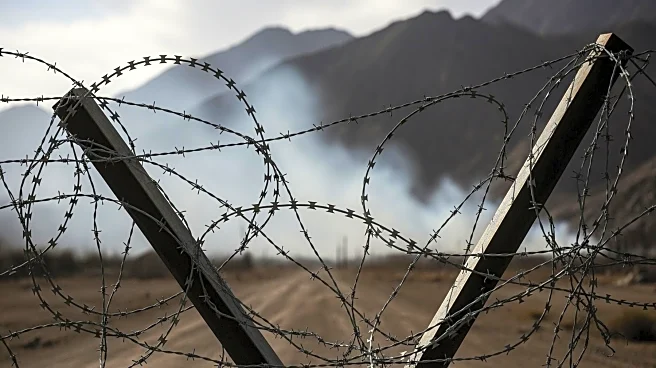What's Happening?
Clashes have erupted between Pakistani and Afghan forces in a remote northwestern border region. According to Pakistan's state-run media, Afghan troops opened 'unprovoked fire' which was repulsed by Pakistani forces.
The conflict resulted in significant casualties, with Afghanistan claiming to have killed 58 Pakistani soldiers, while Pakistan reported 23 of its troops killed. The situation remains tense as both nations continue to exchange fire along their disputed border. Appeals from Saudi Arabia and Qatar temporarily halted the clashes, but all border crossings between Pakistan and Afghanistan remain closed.
Why It's Important?
The ongoing border conflict between Pakistan and Afghanistan raises concerns about regional stability. The escalation could signal a new era of instability in the region, drawing international attention and calls for de-escalation from countries like China, Russia, Saudi Arabia, and Qatar. The conflict impacts diplomatic relations and could affect trade and security in the region. Both countries face internal challenges, and prolonged conflict could exacerbate these issues, affecting civilian populations and leading to further displacement.
What's Next?
The situation remains tense, with both nations on high alert. International stakeholders may increase diplomatic efforts to mediate the conflict and prevent further escalation. The closure of border crossings affects trade and movement between the two countries, potentially leading to economic repercussions. Continued military engagement could lead to further casualties and displacement, prompting humanitarian concerns.
Beyond the Headlines
The conflict highlights the complex geopolitical dynamics in the region, including historical tensions and territorial disputes. It underscores the challenges in achieving lasting peace and stability in areas with longstanding conflicts. The involvement of international stakeholders reflects the global implications of regional conflicts and the importance of diplomatic interventions.









